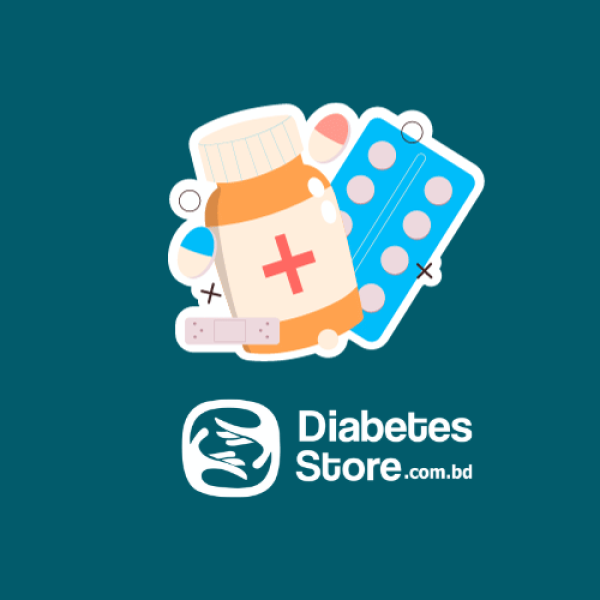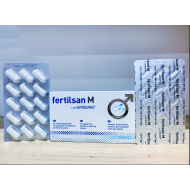
- Stock: In Stock
- Brand: Acme Laboratories Limited
- Product ID: Carvedilol
100% Secure Payment

This Item is for pre order
Carvipress 25 mg Tablet
Indications
Congestive Heart Failure: Carvedilol is indicated for the treatment of mild or moderate heart failure of ischemic or cardiomyopathic origin, in conjunction with digitalis, diuretics and ACE inhibitors, to reduce the progression of disease as evidenced by cardiovascular death, cardiovascular hospitalization, or the need to adjust other heart failure medications. Carvedilol may be used in patients unable to tolerate an ACE inhibitor. Carvedilol may be used in patients who are or are not receiving digitalis, hydralazine or nitrate therapy.
Hypertension: Carvedilol is also indicated for the management of essential hypertension. It can be used alone or in combination with other antihypertensive agents especially with thiazide type diuretics.
Pharmacology
Carvedilol is a non selective β-adrenergic blocking agent which causes vasodilation by blocking the activity α-1 receptors. It exerts antihypertensive effect partly by reducing total peripheral resistance and vasodilation.
Dosage & Administration
Hypertension: Initially 12.5 mg once daily, increased after 2 days to usual dose of 25 mg once daily; if necessary may be further increased at intervals of at least 2 weeks to max.50 mg daily in single or divided doses; Elderly: Initial dose of 12.5 mg daily may provide satisfactory control.
Angina: Initially 12.5 mg twice daily, increased after 2 days to 25 mg twice daily.
Heart failure (under special supervision): Initially 3.125 mg twice daily (with food), dose increased at intervals of at least 2 weeks to 6.25 mg twice daily, then to 12.5 mg twice daily, then to 25 mg twice daily, increase to highest dose tolerated, maximum 25 mg twice daily in patients with severe heart failure or body-weight less than 85 kg and 50 mg twice daily in patients over 85 kg.
Interaction
Drug interactions have been seen with co-administration of carvedilol and digoxin, resulting in an increased bioavailability of digoxin. This increase is not clinically significant and does not correlate with pharmacologic response. Pharmacokinetics studies demonstrated a lack of drug interaction between carvedilol and hydrochlorothiazide, cimetidine, torsemide and warfarin
Contraindications
Carvedilol is contraindicated in patients with severe chronic cardiac failure requiring intravenous inotropic therapy, bronchial asthma or related bronchospastic conditions, second or third-degree AV block, sick sinus syndrome (unless a permanent pacemaker is in place), cardiogenic shock, or severe bradycardia. Use of carvedilol in patients with clinically manifested hepatic impairment is not recommended. Carvedilol is contraindicated in patients with hypersensitivity to the drug.
Side Effects
Side effects include dizziness, headache, fatigue, gastrointestinal disturbances, postural hypotension, peripheral oedema, bradycardia, dry mouth, dry eyes, eye irritation or disturbed vision, impotence, disturbances of micturition, and influenza like symptoms. Rarely angina, AV block, exacerbation of intermittent claudication or Raynaud’s phenomenon, allergic skin reactions, nasal stuffiness, wheezing, depressed mood, sleep disturbances, paresthesia, heart failure, changes in liver enzymes, thrombocytopenia, leucopenia are reported.
Pregnancy & Lactation
Carvedilol should not be used during pregnancy as no studies have been performed in this group. Carvedilol and its metabolites are excreted in breast milk. Therefore, breastfeeding is not recommended during administration of Carvedilol.
Precautions & Warnings
Take caution in hepatic impairment and in heart failure monitor clinical status for 2-3 hours after initiation and after increasing each dose. Before increasing dose ensure that the renal function and heart failure are not deteriorating.
Use in Special Populations
The safety and efficacy of carvedilol in paediatric patients have not been established.
Overdose Effects
Symptoms: Severe hypotension, bradycardia, heart failure, cardiogenic shock and cardiac arrest. Resp problems, bronchospasms, vomiting, lapses of consciousness and generalised seizures.




























%20Pvt.%20Ltd./Movicol-Oral-Powder-190x190.jpg)
